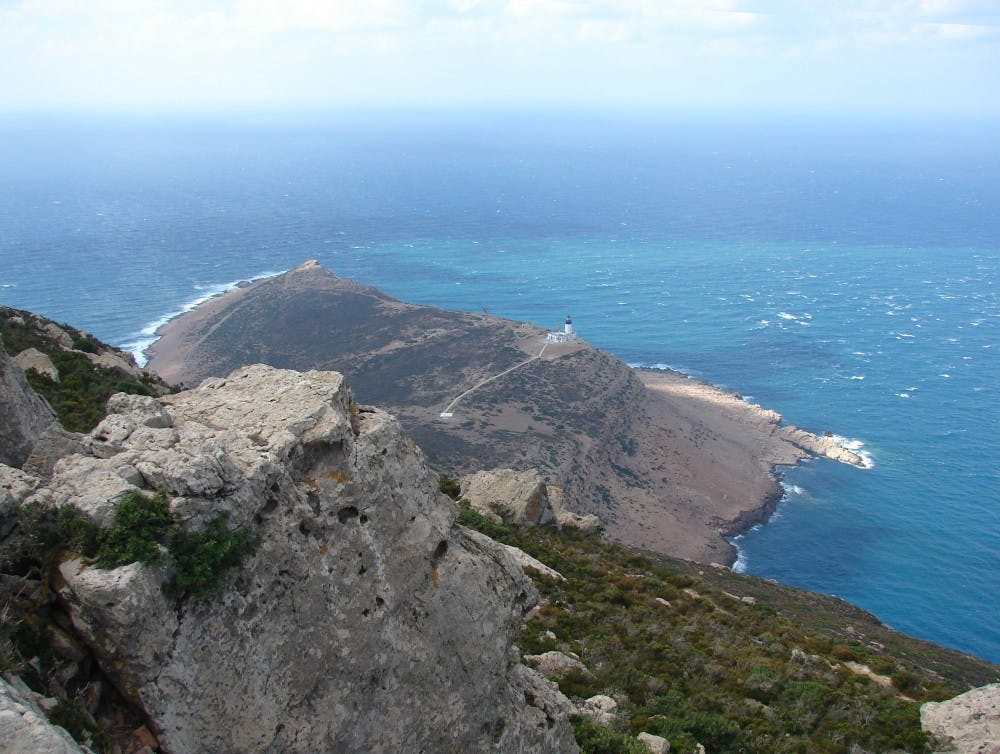Simona Wright, a professor at the College of New Jersey, discussed the importance of understanding and memorializing the migrant crisis in the Mediterranean region, during a lecture in the International Center Commons on Wednesday.
The talk was sponsored by the department of languages, literature and cultures and attracted over 70 audience members.
Wright, who teaches Italian at TCNJ's department of world languages and literature, focused on the importance of understanding the struggles of the numerous refugees who have fled from their home countries to Europe in recent years.
She began the lecture by asking for audience interpretation of several images depicting migration-related issues, including European countries’ reluctance to admit refugees and the risks of sailing through the Mediterranean area.
Wright used audience members’ detailed interpretations of the images to argue that artistic representation provides a deeper sense of migrants’ struggles than other forms of information do. Traditional news reports often oversimplify the crisis which results in shallow political discussion, she said.
“It is upon us not to forget that this matter is complex, and we have to continue to work and study this, and perhaps the arts provides us with the space to have that understanding,” Wright said.
Wright went on to discuss other barriers to comprehension of the crisis’ human impact. For example, she described many European countries’ refusal to admit migrants as an act that silences the voices of refugees.
“The phenomenon of migration needs to interrogate us on what stories we are leaving out of the walls,” Wright said. “What stories and narratives are we letting die?”
While emphasizing the importance of European nations accepting migrants into their physical borders, Wright focused equally on the necessity of memorializing migration. She cited the establishment of a migration museum on the island of Lampedusa, Italy, a frequent landing point for refugees, as an example of such memorialization.
Community support for migrants in Lampedusa and many other locales in the Mediterranean is a result of residents’ personal encounters with migration’s toll, Wright said.
“They experience firsthand what it’s like,” Wright said. “When you’re rescuing a human being, when you see their body, something happens to your emotional and psychological well-being.”
It is important even for Europeans who have not been personally affected by migration to take the time to mourn for those who have died, Wright said.
Enjoy what you're reading?
Signup for our newsletter
Wright allowed time for audience members to ask questions after the main presentation. A question about the effects of the U.S. not taking in large numbers of migrants led her to discuss her personal experiences with migration.
“If you think about it, we are all here as a product of migration,” Wright said. “I think as an Italian coming here, I see the advantages of diversity. I see the advantages of what migration has done for this country.”
Jessica Crouser, a sophomore who attended the lecture for her Sophomore Scholars in Residency, Travel for Discovery, said issues associated with the migrant crisis should have relevance even for those who have not moved from one country to another.
“It’s in the news a lot, and even though it doesn’t directly affect most of us, I think all of us know somebody who had to immigrate, and we don’t want them to suffer during their immigration,” Crouser said.
Contact reporter Savannah Wilson at savannah.wilson@richmond.edu
Support independent student media
You can make a tax-deductible donation by clicking the button below, which takes you to our secure PayPal account. The page is set up to receive contributions in whatever amount you designate. We look forward to using the money we raise to further our mission of providing honest and accurate information to students, faculty, staff, alumni and others in the general public.
Donate Now



